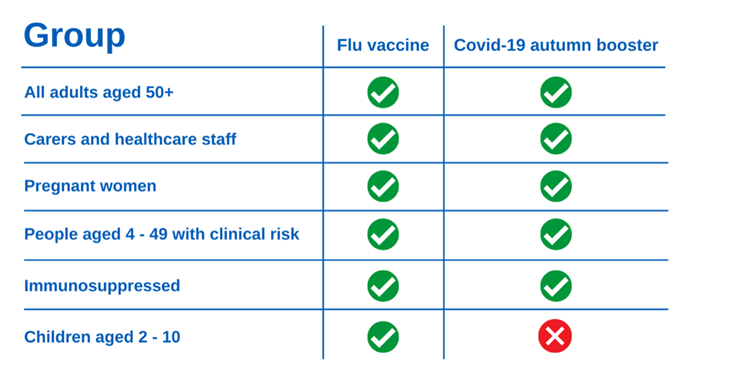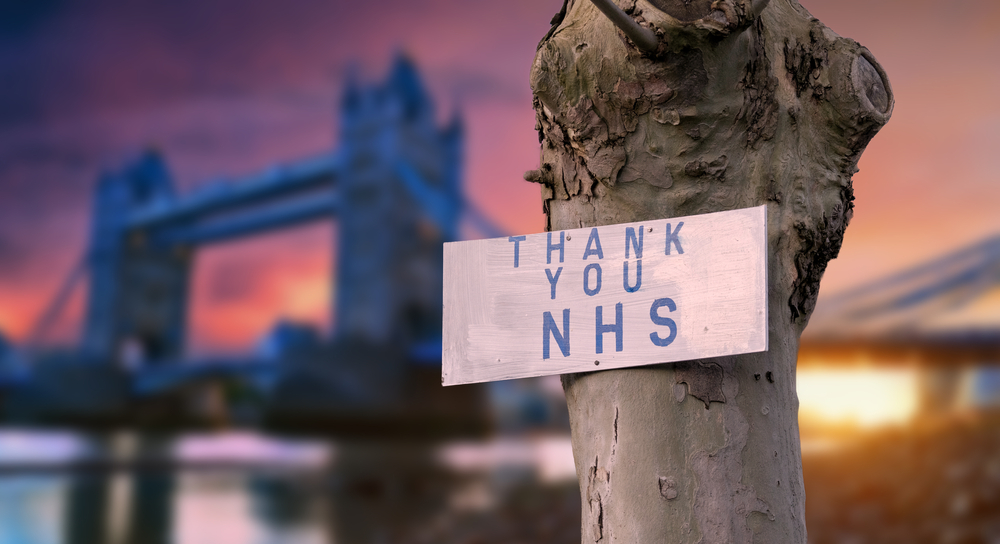Sinéad Mangan-Mc Hale Linked-In profile
With the cost of living a struggle for so many of us, there are steps we can all take to stay well this winter; looking after our health, minimising the risk to others, and reducing the strain on already stretched NHS services.
The clocks going back an hour and the recent torrential rain are sure signs that winter has finally arrived and is settling in for several months. Typically, central heating is switched on at this time of the year, ensuring that our homes are warm, whatever the weather is outside. Still, with soaring energy costs, and the suggestions of regular power cuts, this may not be possible for many people.
There are, however, steps we can all take to stay well this winter, looking after our health, minimising the risk to others, and reducing the strain on already stretched NHS services.
Along with the flu jab, approximately 26 million people are eligible for an autumn Covid-19 booster. With health leaders warning of a ‘twindemic’ of the two illnesses this winter, people are urged to come forward for their jabs.
The NHS has produced a leaflet, “Help us – Help you stay well this winter”, which details different steps we can take to look after our health this winter. All the information provided in this blog has been taken from the leaflet or NHS websites and gives you a quick summary of what you can do to protect yourself and your family.
Boost Your Immunity
• Flu JabThe COVID pandemic’s impact taught us that we must boost our immunity and take any steps necessary to avoid the spread of viruses. This year, the NHS is encouraging everybody to have the flu jab. You may think that the flu is just an unpleasant bad cold, but it can be very dangerous and even life-threatening for some people, particularly those with certain health conditions. The flu jab is available at GP clinics and certain pharmacies throughout the UK. Check if you are eligible for a free flu jab by looking at the chart below; if you are not eligible, the vaccine typically costs between £15-£20. The best time to have your flu vaccine is in the autumn or early winter before the flu starts spreading. But you can get your vaccine later.
• Autumn Covid BoosterWe have hopefully seen the worst of the COVID-19 virus, but it has not gone away, and some people must have the COVID booster to give them added protection. The NHS predicts that many respiratory infections, including COVID-19 and flu, may be circulating at high levels this winter. This is a health risk for vulnerable people and may put increased pressure on hospitals and other healthcare services, which could, in turn, impact the medical treatment of many more people.
The NHS has developed this chart to show which vaccines you should have this winter. If you fall into any of these groups, you are entitled to a free flu jab as well as the COVID Booster. Each group will be invited for vaccinations at different times. Look out for your NHS invitation or check at www.nhs.uk

Know Where To Get The Right Help
When you have a medical emergency or even a medical query, it is good to know where you can go to get the proper care when you need it. Using these services first can help keep the emergency departments free at NHS hospitals.
| Pharmacy | Local pharmacists can help with minor health concerns and illnesses. Visiting your nearest pharmacy is a quick and convenient way to get clinical advice on minor health concerns. They can see you face-to-face on the same day. Local pharmacists are qualified healthcare professionals who can help you manage minor illnesses and other confidential discussions in a consultation room (with no need for an appointment). | |
| GP/Doctors services (Local GP practice) | Your GP can help you over the phone, online and in person. If you need to speak to a GP or doctor, it is best to call your usual GP practice, as they will have your medical records and can provide help based on this. If you need prescription medication, your GP practice can arrange for it to be collected at a convenient pharmacy. Anyone in England can register with a GP surgery. It is free to register. To register, you do not need proof of address or immigration status, ID, or an NHS number, but it can be helpful to take it with you if you do have it. Find a GP practice near you at www.nhs.uk/service-search/find-a-gp | |
| GP help (evenings and weekends) | Call your GP practice as normal. The practice answer phone will provide details of where you can get help and local out-of-hours GP appointments. You can also use the online consultation form on the practice website if your need is not urgent. | |
| Mental Health Services | There are also services to support mental health. The NHS provides a range of talking therapies for people who feel anxious and worried or down and depressed. If you need help, you can refer yourself; you don’t need to go to your GP first. To refer yourself and find more information visit: www.nhstalk2us.org Mental health services for people in crisis. If you need help for a mental health crisis or emergency, you can get immediate help on our freephone telephone lines from our trained mental health advisers and clinicians all day, every day. To find a local NHS urgent mental health helpline in England visit: www.nhs.uk/service-search/mental-health/find-an-urgent-mental-health-helpline | |
| 111 online (111.nhs.uk) | Get the right advice for an urgent problem. NHS 111 is a website and phoneline available all day, every day to help if you have an urgent medical problem. Doctors, nurses, paramedics, and fully trained advisors are available to ensure you receive the right care. They can: • find out what local service can help you; • connect you to a nurse, emergency dentist, pharmacist, or GP; • get you a face-to-face appointment if you need one; • give you an arrival time if you need to go to A&E; • tell you how to get any medicine you may need; • give self-care advice. You can contact NHS 111 at 111.nhs.uk or by calling 111. | |
| 999 | f you, or someone you know, is experiencing a life-threatening medical emergency, you should call 999 or attend an A&E. |
Practical Advice
• Keep on top of your medications.To ensure you do not run out of medication during the cold weather or over the holidays, order and collect repeat prescriptions before they run-out. Some pharmacies and GP practices close over the 25, 26, 27, 28 -31 December and 1 January. It is best to collect prescriptions and mediation in advance of these days.
• Keep a well-stocked medicine cabinet.Having essential medical items at home can help when you start to feel unwell or hurt yourself. It’s a good idea to have plasters, antiseptic cream, paracetamol, and ibuprofen on hand (but keep them out of the reach of children). Speak to your pharmacist, and always read the label of any new medication.
• Being active and staying connected to friends and family.This is important for your mental and physical health over the winter. If you are on your own, there are many organisations that can link you up with other people and support services. You can visit: www.hfehmind.org.uk/wellbeing-west-london or www.hubofhope.co.uk







